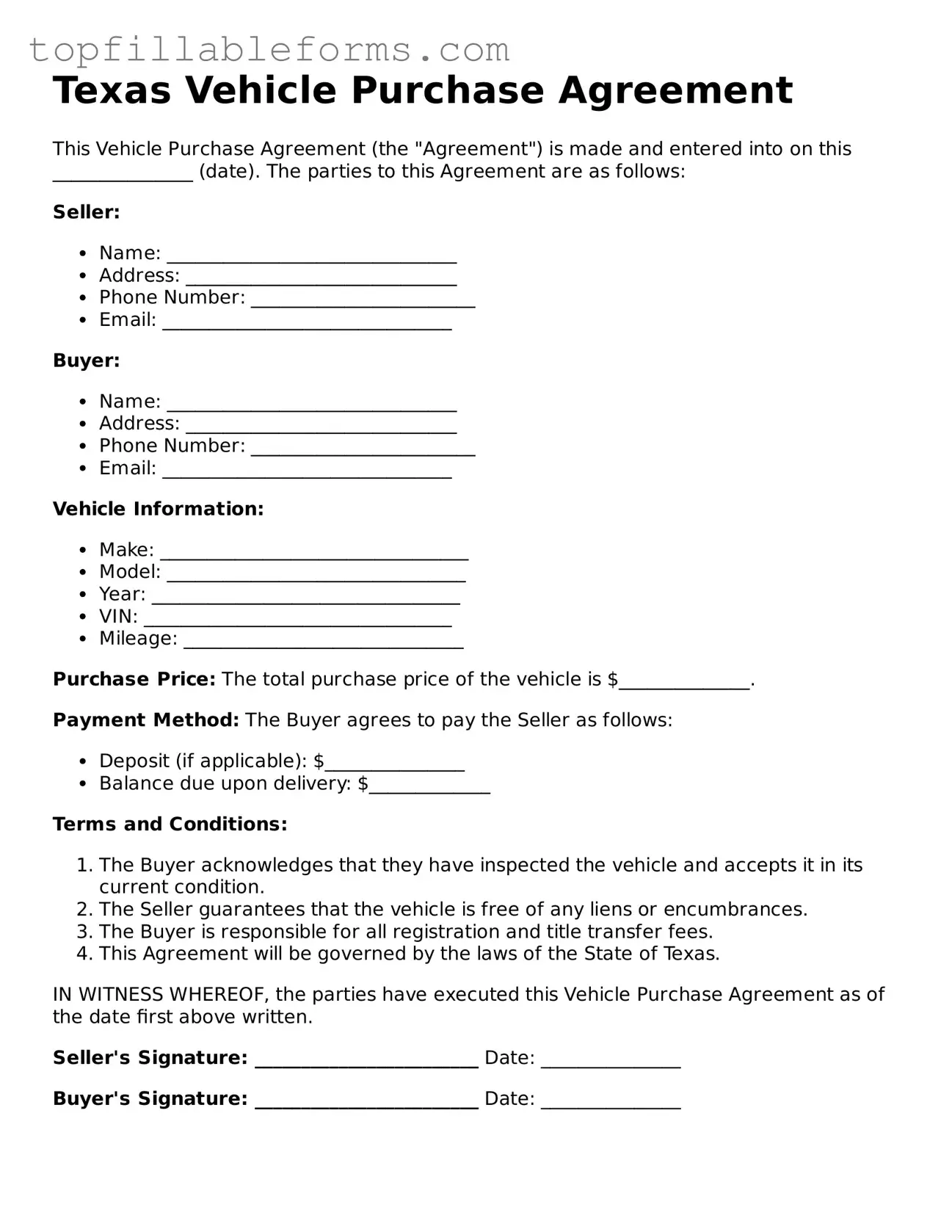Attorney-Verified Vehicle Purchase Agreement Template for Texas
The Texas Vehicle Purchase Agreement form is a legal document that outlines the terms and conditions of a vehicle sale between a buyer and a seller in the state of Texas. This agreement serves to protect both parties by clearly detailing the obligations and rights associated with the transaction. Understanding this form is essential for ensuring a smooth and lawful vehicle purchase experience.
Open Vehicle Purchase Agreement Editor Here

Attorney-Verified Vehicle Purchase Agreement Template for Texas
Open Vehicle Purchase Agreement Editor Here
Finish the form now and be done
Finish your Vehicle Purchase Agreement online by editing, saving, and downloading fast.
Open Vehicle Purchase Agreement Editor Here
or
▼ PDF File
